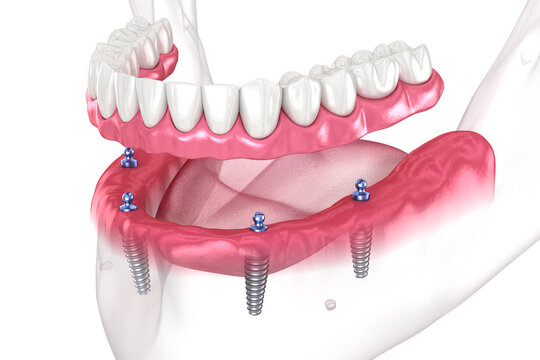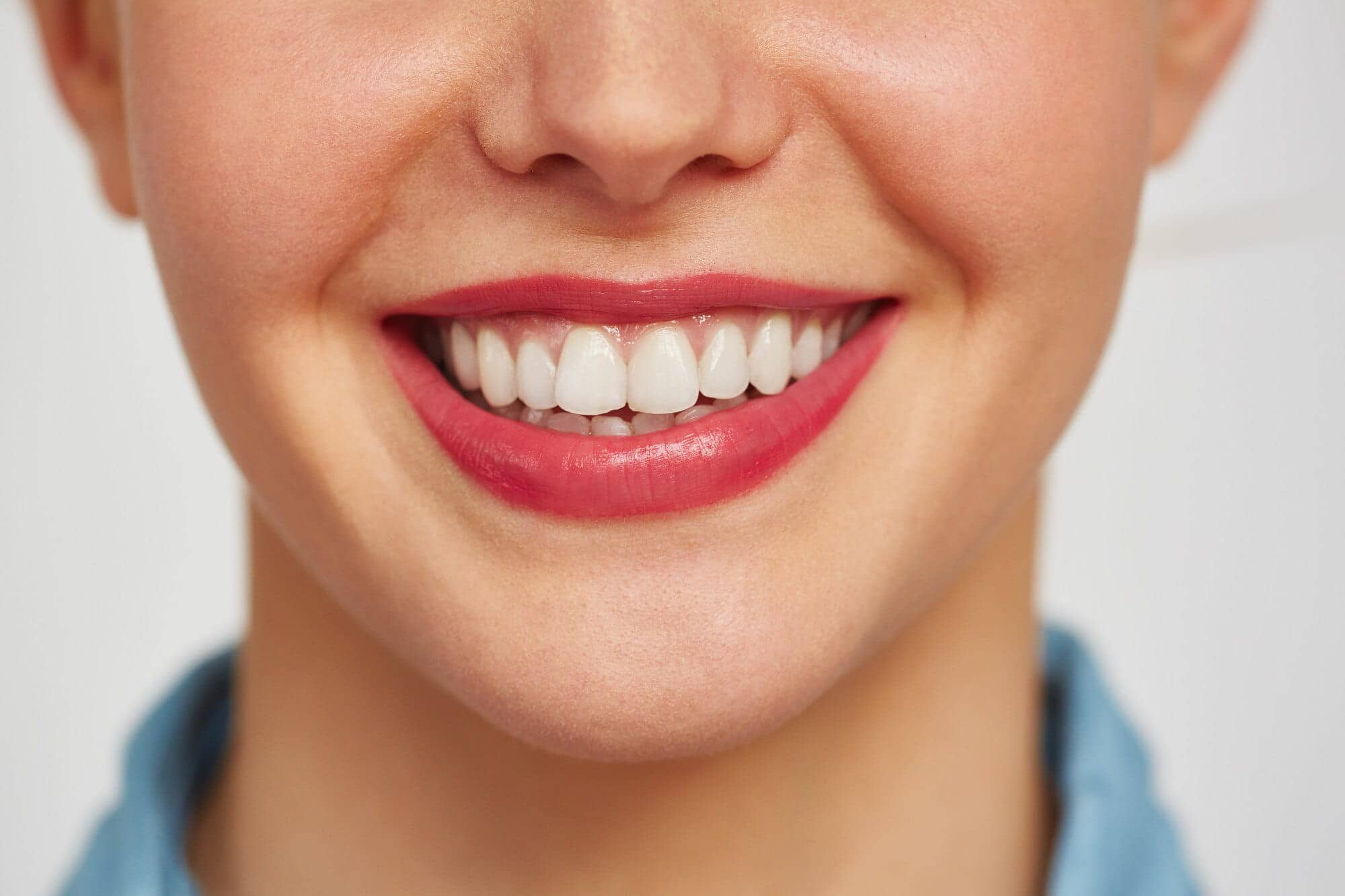What are All-on-4 implants?
All-on-4 implants are a dental solution designed to replace an entire arch of teeth (either upper or lower) using just four dental implants to support a full set of prosthetic teeth. This treatment is ideal for individuals who have lost most or all of their teeth in one arch and want a permanent, stable alternative to dentures. The All-on-4 technique allows the prosthetic teeth to be securely fixed to the implants, providing a natural-looking, functional smile without the need for removable dentures.


What does the All-on-4 procedure look like?
- Consultation and Assessment: Includes X-rays or CT scans to evaluate the jawbone and create a customized treatment plan.
- Preparation: Extraction of remaining teeth (if necessary) and bone grafting (rarely needed due to strategic implant placement).
- Implant Placement: Four implants are placed strategically, with two at the front (90° angle) and two at the back (45° angle) to maximize stability.
- Temporary Prosthesis: A temporary bridge is attached on the same day of surgery for immediate aesthetics and function.
- Healing Period: Implants fuse with the jawbone over 3–6 months through osseointegration.
- Permanent Prosthesis: The temporary bridge is replaced with a custom-made permanent prosthesis for a durable, natural-looking smile.
What are the risks of All-on-4?
- Implant Failure: Rare but possible due to infection, insufficient bone, or excessive pressure during healing.
- Infection: Bacteria at the implant site can cause complications. Proper oral hygiene minimizes risk.
- Bone Loss: Some bone loss may occur, especially with poor implant care or underlying health issues.
- Nerve Damage: Improper implant placement may cause numbness or tingling in the lips, chin, or gums.
- Sinus Issues: For upper jaw implants, there’s a small risk of protrusion into the sinus cavity, leading to complications.
- Prosthetic Breakage: Temporary prostheses may be less durable and require careful handling.
- Discomfort and Swelling: Normal after surgery but typically subsides within a few days.
- Long-Term Maintenance: Regular checkups and proper oral hygiene are essential for long-lasting results.
Who is a good candidate for All-on-4 implants?
- Individuals who have lost most or all teeth in one or both arches.
- Patients with sufficient jawbone density for implant placement.
- Those looking for a stable and permanent alternative to traditional dentures.
- People in overall good health without conditions that could affect healing, such as uncontrolled diabetes or smoking.
What are the benefits of All-on-4 implants?
- Immediate Results: A temporary prosthesis is placed the same day, restoring appearance and function.
- Stable and Secure: No slipping or discomfort like traditional dentures.
- Aesthetically Pleasing: Custom prosthetics provide a natural and attractive smile.
- Minimal Bone Grafting: Strategic implant placement often avoids the need for bone grafting.
- Quick Recovery Time: The streamlined procedure reduces healing time compared to individual implants.
- Long-Term Durability: With proper care, implants can last decades, offering a permanent solution.
How long do All-on-4 implants last?
With proper care and maintenance, All-on-4 implants can last 20 years or more. Factors affecting longevity include:
- Oral hygiene practices.
- Regular dental checkups.
- Avoiding habits like teeth grinding or smoking.
The prosthetic teeth may need replacement after 10–15 years due to normal wear and tear, but the implants themselves are designed for long-term stability.
Is the All-on-4 procedure painful?
The procedure is performed under local anesthesia or sedation, ensuring you feel no pain during the surgery. Post-surgery, mild discomfort and swelling are normal but manageable with prescribed pain medication and rest.
Do All-on-4 implants require bone grafting?
Bone grafting is rarely required with the All-on-4 technique. The implants are placed at strategic angles to maximize contact with available bone, making the procedure suitable for patients with minimal bone density.
Can All-on-4 implants be customized to match my natural teeth?
Yes, the prosthetic teeth are custom-made to match the shape, size, and color of your natural teeth, ensuring a seamless and natural-looking smile.
Do All-on-4 implants feel like natural teeth?
All-on-4 implants closely mimic the look, feel, and function of natural teeth. The secure fit and fixed nature of the prosthesis provide stability and comfort similar to having a full set of healthy natural teeth.
Can I eat normally with All-on-4 implants?
Yes, once the healing process is complete, you can enjoy a wide variety of foods without restrictions. During the initial healing period, a soft-food diet is recommended to avoid placing excessive pressure on the implants.
How do All-on-4 implants compare to traditional dentures?
- Stability: Unlike dentures, All-on-4 implants are fixed and do not slip.
- Comfort: Eliminates gum irritation and discomfort associated with dentures.
- Functionality: Allows for stronger biting and chewing forces.
- Aesthetics: Provides a natural-looking, permanent solution.
Are there alternatives to All-on-4 implants?
- Individual Implants: A single implant for each missing tooth, though this is more invasive and costly.
- Implant-Supported Dentures: Removable dentures supported by implants, offering improved stability compared to traditional dentures.
- Traditional Dentures: Non-surgical option for replacing teeth, though less stable and comfortable.
Can All-on-4 implants be replaced or repaired?
Yes, individual components, such as the prosthetic teeth, can be replaced if damaged or worn. The implants themselves are designed for long-term stability and are rarely replaced unless complications arise.